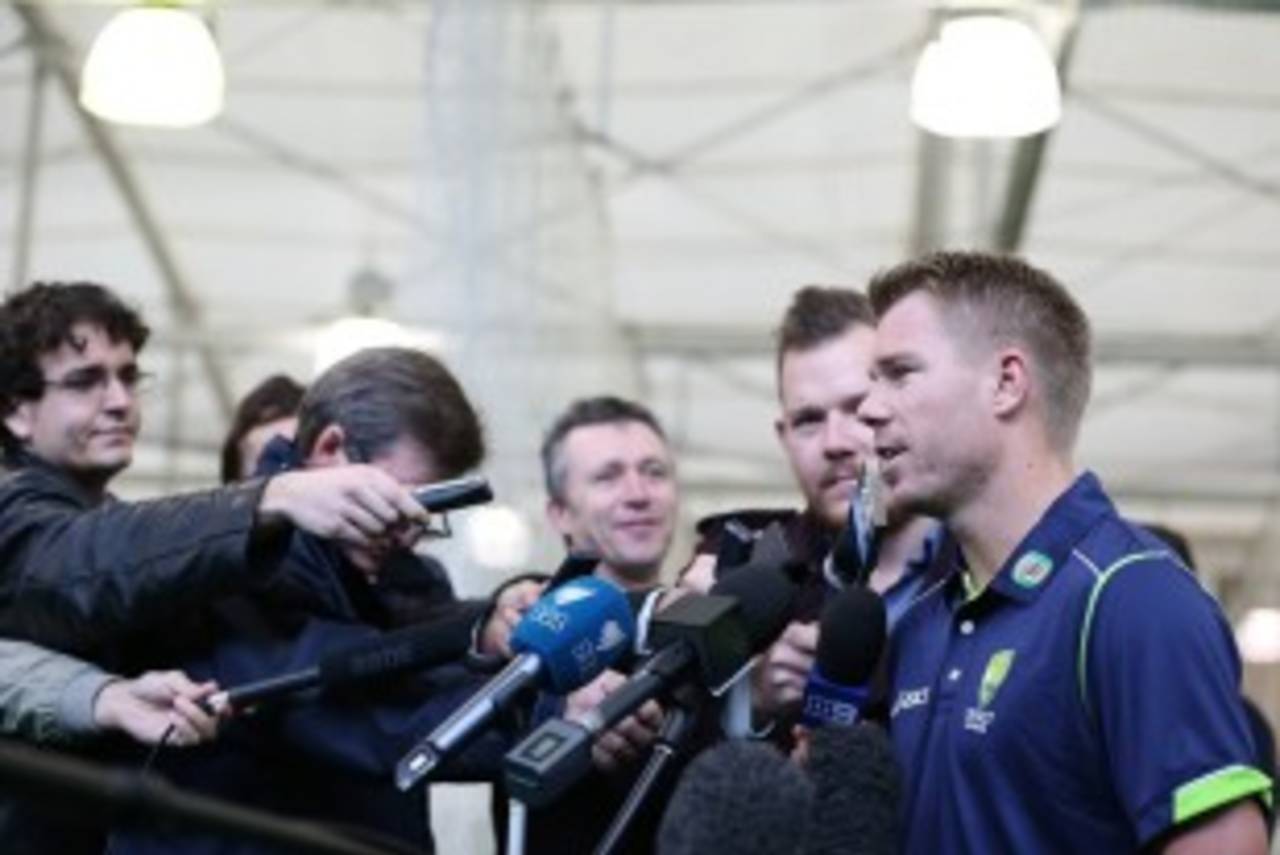David Warner's privately convened code of conduct hearing for his recent Twitter indiscretions may be the last of its kind, as Cricket Australia consider adopting a system whereby disciplinary charges against players would be heard in forums open to public scrutiny via the media.
Adrian Anderson, the former AFL executive, is due to submit his report into CA's integrity and disciplinary policy management in June. ESPNcricinfo understands that one of its key recommendations may be to call for the opening of disciplinary hearings to outside observers after the fashion of the AFL tribunal.
This means a hearing like Warner's would be open to media reportage, a significant break from cricket's traditional policy of keeping board matters, including the disciplining of players, decidedly private, opaque affairs.
It would also be a marked departure from the convention followed by most cricket boards and also the ICC, which does not permit public access to code of conduct hearings presided over by match referees, nor the appeal hearings that may subsequently eventuate.
Anderson is also expected to recommend that CA's code of conduct procedures and protocols for hearings be tightened, following a summer in which the consistency and transparency of the current system was called into considerable question by a series of incidents during the BBL in particular.
Standards of on-field behaviour during the event were allowed to lapse, culminating in the ugly bust-up between Shane Warne and Marlon Samuels at the MCG. That incident and its handling in a pair of seemingly contradictory and indecipherable code of conduct verdicts did not sit well with a majority of players and others.
Anderson is likely to call for a new structure to manage integrity and disciplinary matters, moving the BBL chief and CA head of commercial operations Mike McKenna away from a role that currently has him holding both the commercial and disciplinary keys for CA - an apparent conflict of interest.
Despite its novelty in cricket, this would not be the first time CA has toyed with subjecting its disciplinary procedures to public analysis. The CA chief executive James Sutherland has previously stated his preference for public hearings and, as far back as 2002, player contracts included a clause allowing the board to decided whether or not disciplinary hearings would be heard in camera or with the media present.
That change had followed Steve Waugh's complaints that he was not allowed to publicly state his defence to an ICC charge he faced in the 2001 Boxing Day Test against South Africa for questioning Darrell Hair's decision to give him run out without referring to the third umpire.
Nevertheless, the major obstacle to public hearings would appear to be the Australian Cricketers' Association, whose chief executive Paul Marsh is believed to be skeptical about the necessity of the concept.
Daniel Brettig is an assistant editor at ESPNcricinfo. He tweets here
